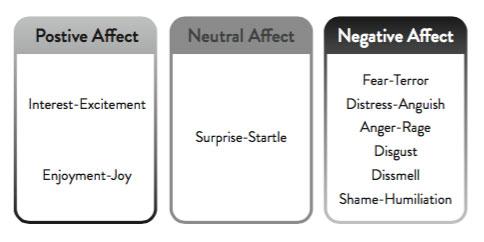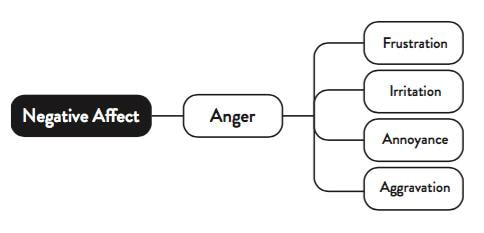|
Author: The Process Server Center | PROServerCENTER is a legal professional organization whose mission is to set a national standard for the process service industry in the United States.
As reported by Vice this week, a company called Civvl says evicting people is the "FASTEST GROWING MONEY MAKING GIG DUE TO COVID-19."
During a time of great economic and general hardship, many people are struggling to make ends meet, while others are trying to monetize on their hardship. Due to high unemployment, closed businesses and economic uncertainty millions are struggling to pay their rent. Being part of the small business sector process service agencies and individual process servers have seen their volume of services diminish. When both sides of the economy are struggling, a new startup is enlisting cash-strapped gig workers like process servers to help landlords evict tenants who cannot make rent during the Covid-19 pandemic. The company, named Civvl, aims to be Uber for evicting people, and to make it easy for landlords to hire process servers and eviction agents as gig workers. In addition to the ethical issues here, who is a startup like Civvl really helping?
It is not the first time that startups have tried to streamline service of process and make money off of process servers or streamline taxi service, making money off of drivers, as in the Uber case. Equipped with the right app building skills and an interested initial investor, a tech company can easily create an app overnight and throw money at it to market it. Similar to other apps, Civvl simply provides an online platform where during a time when there is a federal ban on evictions, the startup appears to pass all risk onto the companies using its platform. As the site states, it simply “provides lead generation to independent contractors," and does not actually carry out the work itself. Both landlords and process servers will be the ones responsible for the proper and legally correct service of notices to tenants, and they will be the ones carrying the ultimate burden while Civvl will monetize for using its app. A spokesman for the company, as reported by CBSNews, emphasized that Civvl is not actually carrying out evictions, but rather connecting independent junk haulers or process server contractors with opportunities to clear out property. "It's basically like a job center," the spokesman said. "This is no different than you going on Monster.com." What are Civvl Craigslist Ads Looking for? The listings in 17 cities, tracked by Princeton's Eviction Lab, call for workers who are a minimum of 18 years old, and brags that it provides a “true flexible schedule” and a “minimal background check.” The average Civvl worker, the post says, completes six jobs a day. Workers hired through Civvl are classified as independent contractors and are required to have their own car and liability insurance, among other things. The terms also ask users to give up their rights to sue the company and agree to resolve any disputes in arbitration. What the Startup Charges? The app charges workers $35 a month to use the service on top of a 30% cut of their earnings, according to its terms of service. Do Apps like Civvl Benefit Process servers and Clients? Let’s look at what legal professionals and process servers need in order to successfully complete the delivery of legal documents and let’s see to what extent this can be achieved by fast money-making apps like Civvl.
While it is tempting for tech companies like Civvl to try and monetize on gig workers like process servers, service of process still remains “personal” and it is still the most reliable way to ensure compliance with constitutionally imposed due process of notice to a defendant and the opportunity to be heard. Without proper service of process a court has no jurisdiction over a defendant and may not proceed. While it may look easy to create an app and connect a process server with a client, the “personal” factor still remains a huge component in service of process. Quality is still very much dependent on the knowledge and professionalism of both clients and process servers, and human management remains a very important part of service of process, a part that new apps cannot resolve at this time. FIND OUT HOW WE HELP PROCESS SERVERS SUCCEED
Author: The Process Server Center | PROServerCENTER is a legal professional organization whose mission is to set a national standard for the process service industry in the United States.

Summary: A key role in learning how to apply FBI techniques while serving legal documents is developing our emotional intelligence. By doing that, we learn a crucial secret about de-escalating any difficult situation or calm an angry person in seconds. That secret consists of two simple things:
Process servers face many challenges while attempting to locate a person, to obtain more information that could help find the person to be served, to build rapport with a stranger, to alleviate an escalating situation. Most of these challenges can be resolved by observing and communicating. Observation plays a key role in identifying and gathering additional information that could prove helpful in ruling out an address. It helps a process server discover more about the residence, rule out if anyone actually lives at the given address or not; or confirm that a person may not reside here if his/her name is not on the mailbox.
Along with observation, communication helps a process server gather valuable information before and during an attempt to deliver process and may ultimately help with locating the person being served or overcome a difficult situation of avoiding. Using FBI techniques and tools process servers can successfully build rapport, diffuse a difficult situation, gather valuable information and ultimately complete the service of process right the first time.
A key role in learning how to apply FBI techniques while serving legal documents is developing our emotional intelligence. By doing that, we learn a crucial secret about de-escalating any difficult situation or calm an angry person in seconds. That secret consists of two simple things:
Experience shows that underneath anger and fear, people are often experiencing deep unresolved grief. Many people also experience abandonment and feel deeply unloved. These are added to the list because they arise often.
The physical aspect of emotion is what we commonly call feeling. When a person you are trying to serve gets frustrated, his/her face may turn deep red which is caused by blood rushing into his capillaries. In addition, some people have a difficult time labeling their emotional experience. A person you are trying to communicate with while attempting to deliver legal documents, may experience the affect of anger, for example, but not be able to communicate his experience. He will just want to go out and hit something because he has no way to express to himself or others what is going on inside him. Another person may be able to categorize his emotional experience as anger, and communicate in a rough way that he/she is angry. People who are able to not only categorize their emotional experience, but can also provide details about it, tend to have higher emotional intelligence, have better self-control, and are able to make better choices under the fire of emotion. People with lesser ability to name and detail their emotions have less emotional intelligence, less self-control, and a harder time making good choices when upset. Here is an illustration showing the degrees of emotional distress:
As a process server your communication skills and ability to detect emotions in others help you identify situations that may spiral out of control. Equipped with the right set of tools and techniques, a process server can learn to de-escalate a tough situation or calm an angry person in 90 seconds or less. It is important to be aware of the words you use, the way you phrase things. Do you phrase things always as either/ or? Are the word choices you choose always negative? Are you compassionate with how you describe the purpose of you knocking on someone's door? Do you use language that lifts up or pulls others down?
Mindfulness is one of the most effective behavioral tools you will ever have as a process server for dealing with rising anxiety, stress, sadness, and myriad other emotions. Process service is often a difficult job where both process servers and the people they are trying to serve experience negative emotions. Therefore, process servers must be equally mindful of their own emotions as they are to the emotions of the people they encounter in their daily routes to serve process. Internal mindfulness, which pays attention to our own inner self-talk, watches for any negative patters in behavior or perceptions. It takes some practice because you have to break through the distortion of what you think versus what is true. Next time you are out attempting to deliver legal documents, be mindful about what is real and what is distorted. Watch out for your own negative thoughts as they can influence how you approach the next person on whose door you are going to knock. Always take a step back and take control of your own emotions before you carry them with you and onto the next person you are going to try and deliver legal documents to. Developing your emotional intelligence as a process server is just one of several tools and techniques that top FBI agents use to de-escalate and calm an angry person. To find out more about the other tools that FBI agents use on a daily basis, consider enrolling in the program "How To Serve Like an FBI Agent". Handle difficult to serve people, learn to deal with confrontation, and cut time spent per service with tactics and strategies specifically developed for the process service industry based on the experience and knowledge of FBI agents and law enforcement officers. |
|
|
PROServerLIST helps clients hire the Best Process Servers - Pre-Screened and Certified |
|
THE PROCESS SERVER CENTER | PROServerCENTER |
✆ 917-409-7046
|
FOLLOW US
|
|
|
|
|
Copyright © 2017 - 2020 The PROCESS SERVER CENTER | All Rights Reserved




 RSS Feed
RSS Feed
